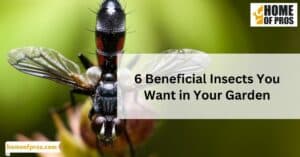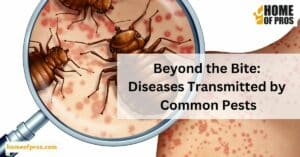If you’ve ever spent time around horses or other large animals, you may have been bothered by the persistent buzzing and biting of horse flies. But what exactly are horse flies, and do they really bite?
Yes, horse flies do bite humans. Females have scissor-like mouthparts that cut into the skin to feed on blood. Their bites cause pain and discomfort but can be avoided with proper precautions. Be sure to cover up as much skin as possible when horse flies are present.
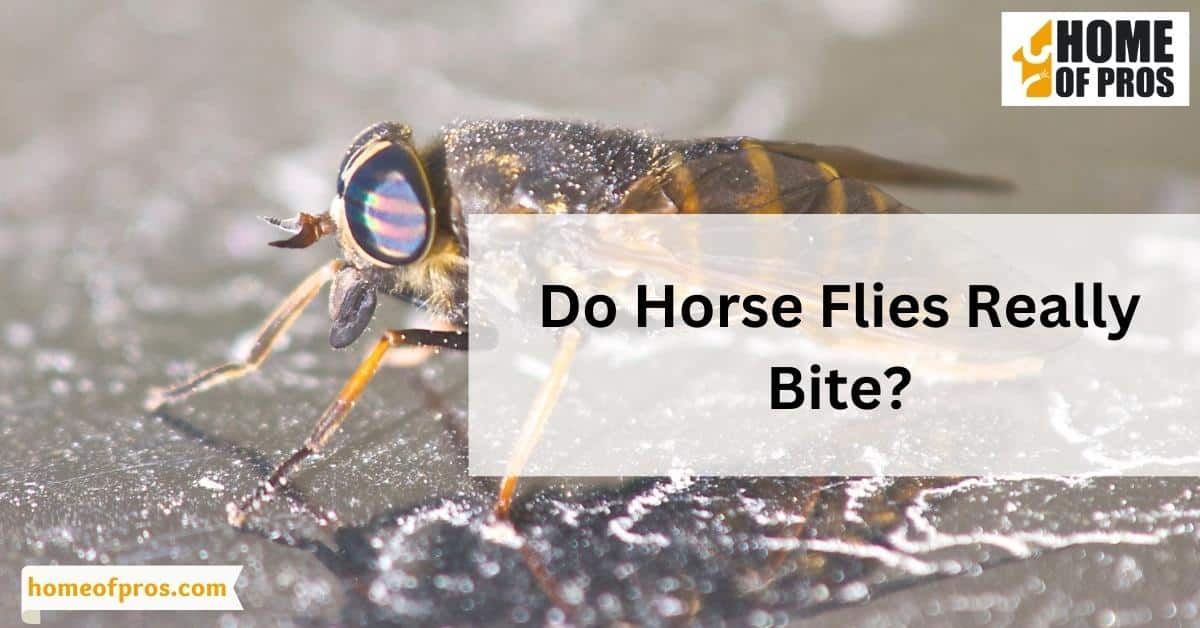
What Are Horse Flies?
Horse flies, often seen during the warm summer months, are a type of large fly notable for their fast flight and aggressive nature. They belong to the family Tabanidae in the animal kingdom. You can identify them by their size – typically ranging from 0.75 to 1.25 inches long – and their large, colorful eyes.
This pesky creature is known for its painful bite. Unlike mosquitoes, which pierce the skin to feed on blood, horse flies have scissor-like mouthparts that cut into the skin, causing discomfort. They are attracted to movement, shiny surfaces, carbon dioxide, and warmth, which is why they tend to bother people and animals.
Despite being a nuisance, horseflies play a significant role in the ecosystem. They serve as pollinators for some plants, and their larvae are a food source for other animals.
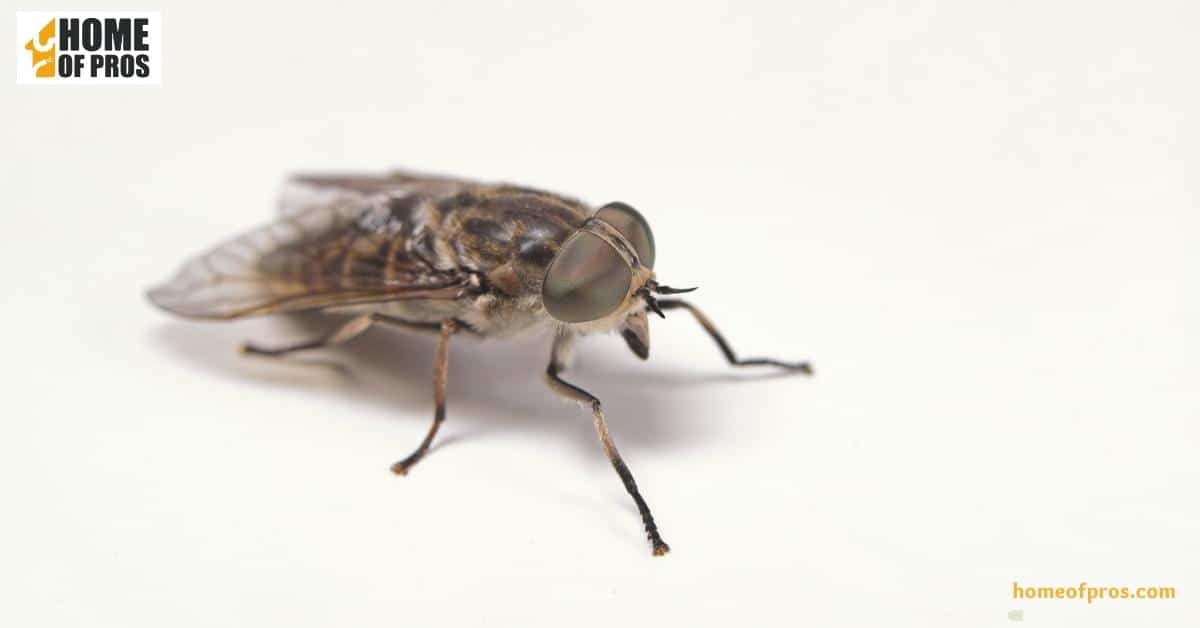
Why Does Horse Fly Bite?
Horse flies are notorious for their painful bites, but have you ever wondered why they bite? While both male and female horse flies feed on pollen and plant nectars, it’s the females who are responsible for the biting. Unlike males, female horse flies require a blood meal to reproduce, making them aggressive feeders.
Females are equipped with scissor-like mouthparts known as mandibles, which they use to cut into the skin of their host. After creating an opening, they lap up the blood that flows out. This feeding process is what causes the sharp, burning sensation associated with a horse fly bite.
Horse flies are attracted to moving objects, dark colors, and exposed skin. They are also drawn to carbon dioxide and warmth, explaining why they often target humans and animals. So, if you’re sweating or have an open wound, you’re more likely to be bitten.
While horse fly bites can be painful and irritating, they usually go away on their own in a few hours. However, in some cases, they can cause inflammation, swelling, or even an allergic reaction. If you want to avoid horse fly bites, it’s best to cover up as much as possible, avoid wearing dark colors, and keep moving to a minimum when horse flies are present.
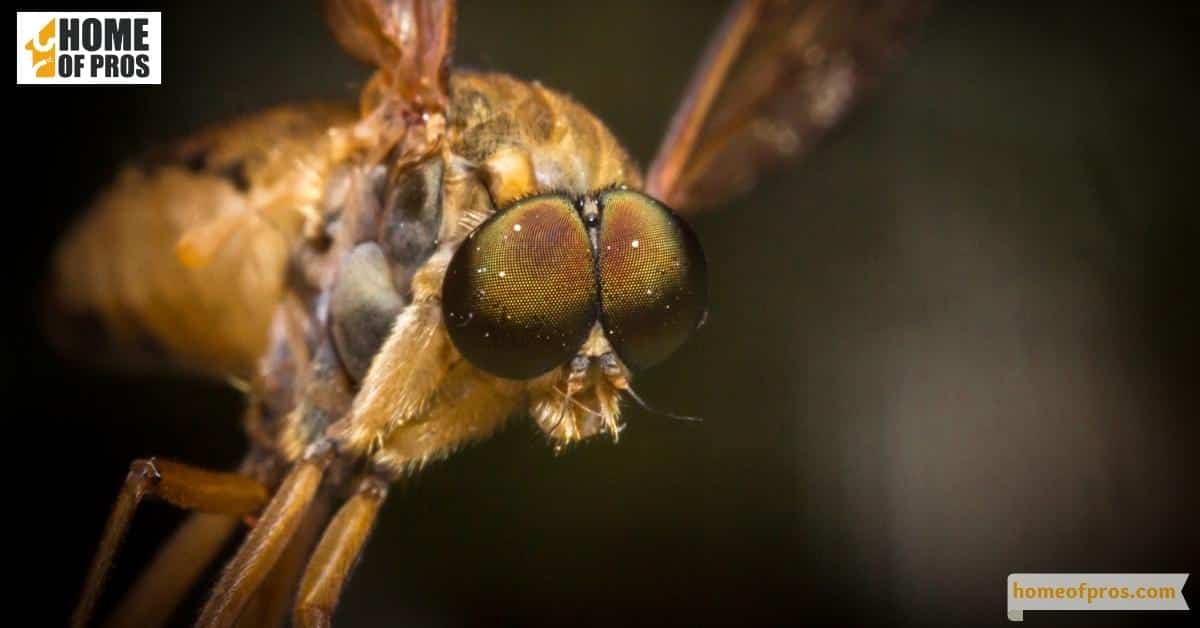
When Does Horse Fly Bite?
Horse flies are most active during the day, particularly in the warmer months between May and September. They are especially prevalent near swamps, marshes, along pond and stream banks, and at the edge of wooded areas. Horse flies are attracted to movement, shiny surfaces, carbon dioxide, and warmth, which explains why they often target humans and animals.
While both male and female horse flies consume plant nectar and pollen, it’s the females who bite as they require a blood meal for protein to produce eggs. The biting usually happens early in the morning or late in the afternoon.
When a horse fly bites, its scissor-like mouthparts cut into the skin, causing immediate pain and discomfort. The bite site can develop into a large, red, itchy, and swollen bump within minutes.
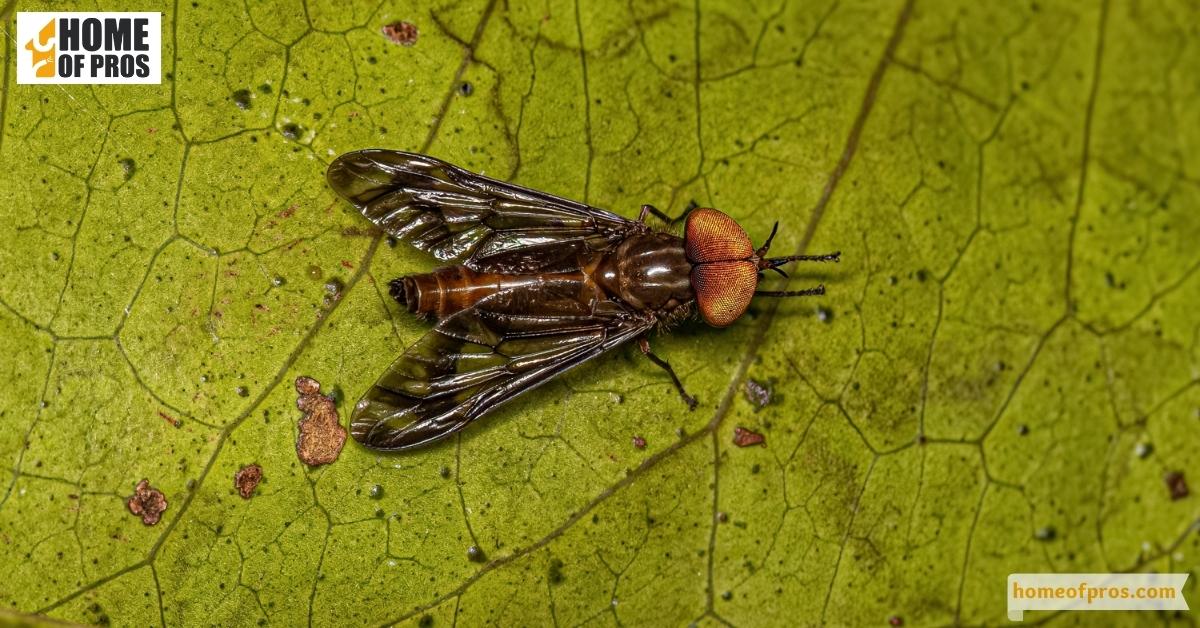
How To Identify A Horse Fly Bites
Horse fly bites can be painful and uncomfortable, so it’s essential to know how to identify them. Recognizing horse fly bites and understanding their symptoms can help you take appropriate steps to treat the bite and alleviate discomfort.
Physical Appearance of the Bite
A horse fly bite is usually red and raised. Unlike mosquito bites, which typically appear as small red bumps, horse fly bites are often larger and more pronounced. The bite site may also have a circular pattern due to the way horse flies cut into the skin.
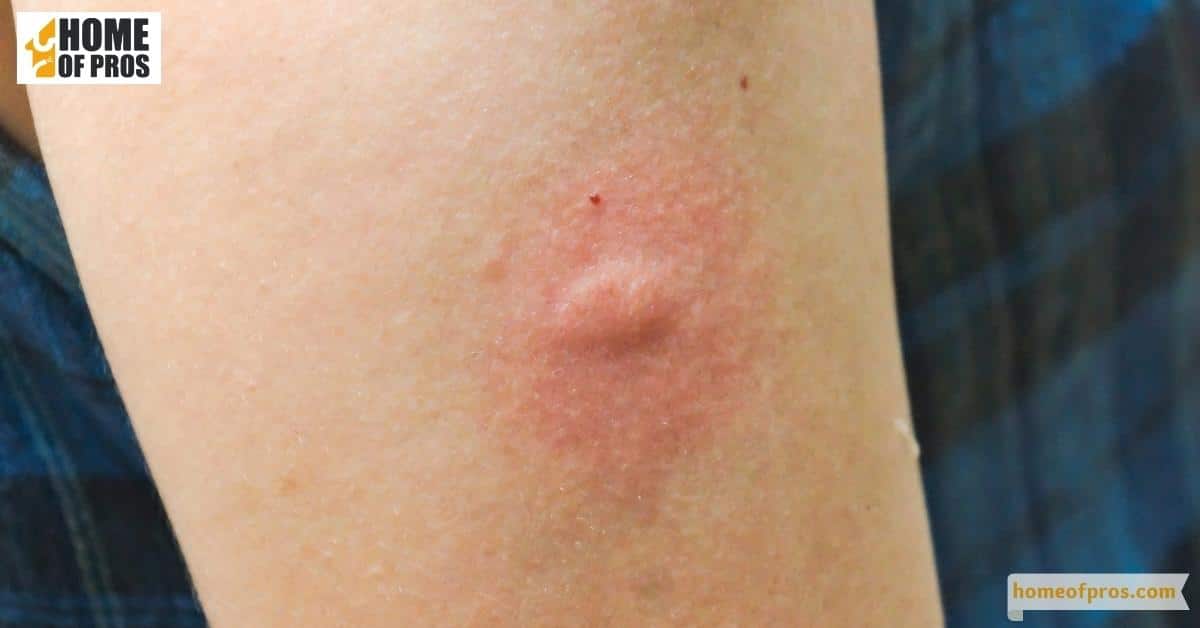
Immediate Pain and Discomfort
One of the most distinguishing features of a horse fly bite is the immediate, sharp pain that accompanies it. This is because horse flies use their scissor-like mouthparts to cut into the skin before feeding on blood, making their bites more painful than those of other insects.
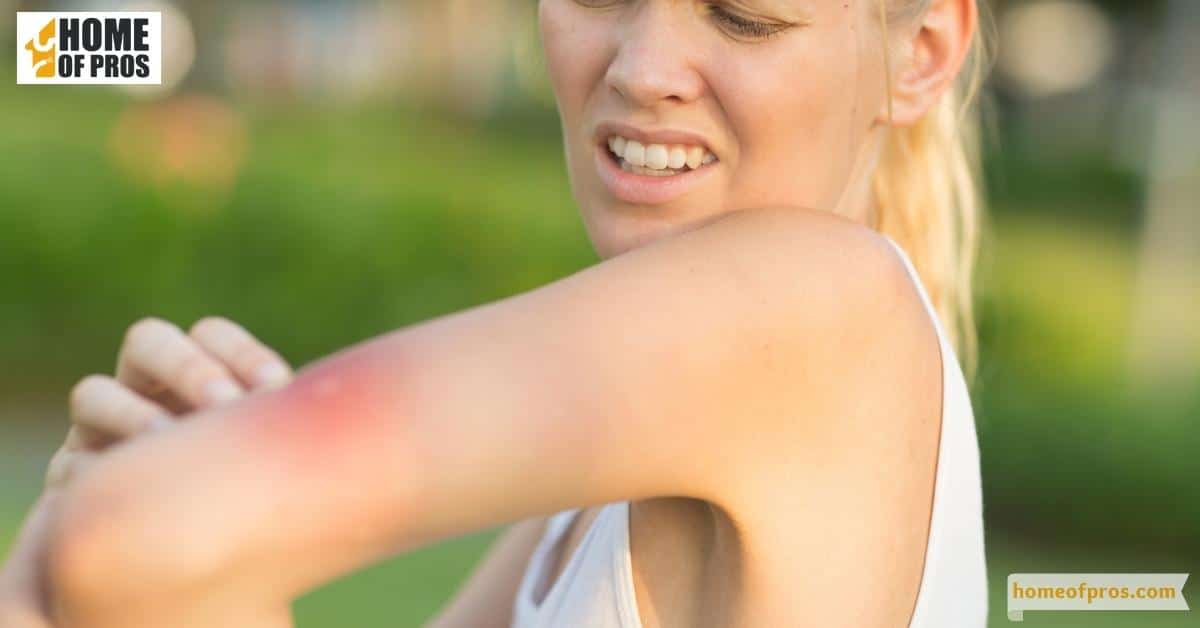
Swelling and Redness
In many cases, a horse fly bite leads to significant swelling and redness. This inflammation can occur within minutes of the bite and may last for several hours or even days. The area around the bite may feel warm to the touch.
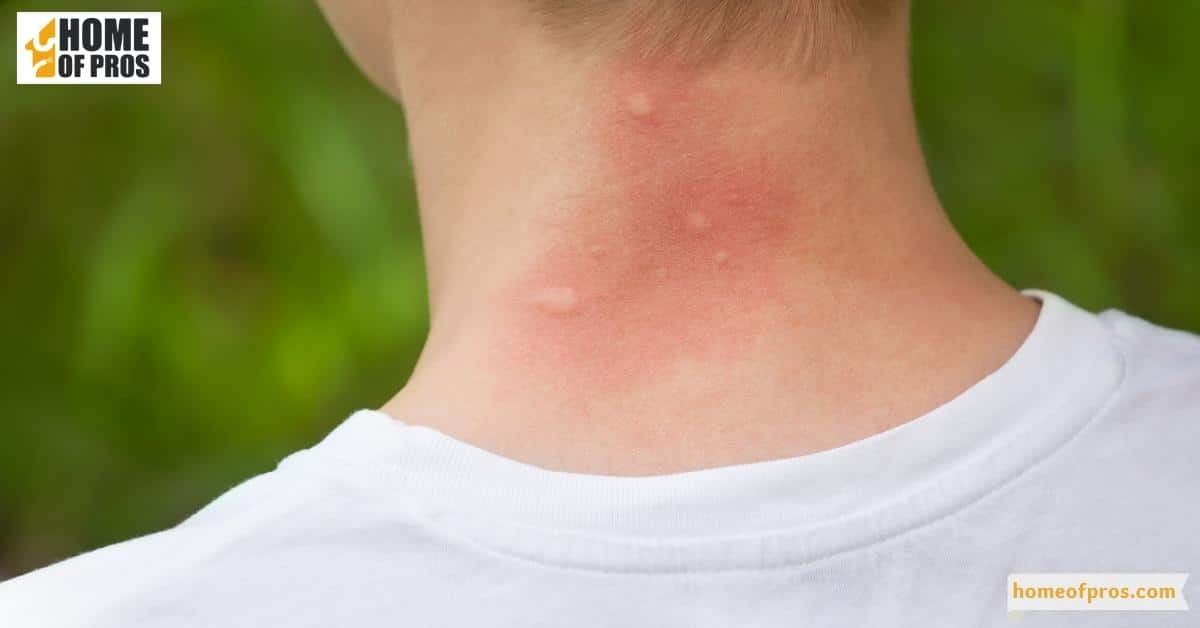
Itching
Like many insect bites, horse fly bites can cause severe itching. However, scratching the bite can exacerbate the swelling and potentially lead to infection, so it’s important to resist the urge to itch.
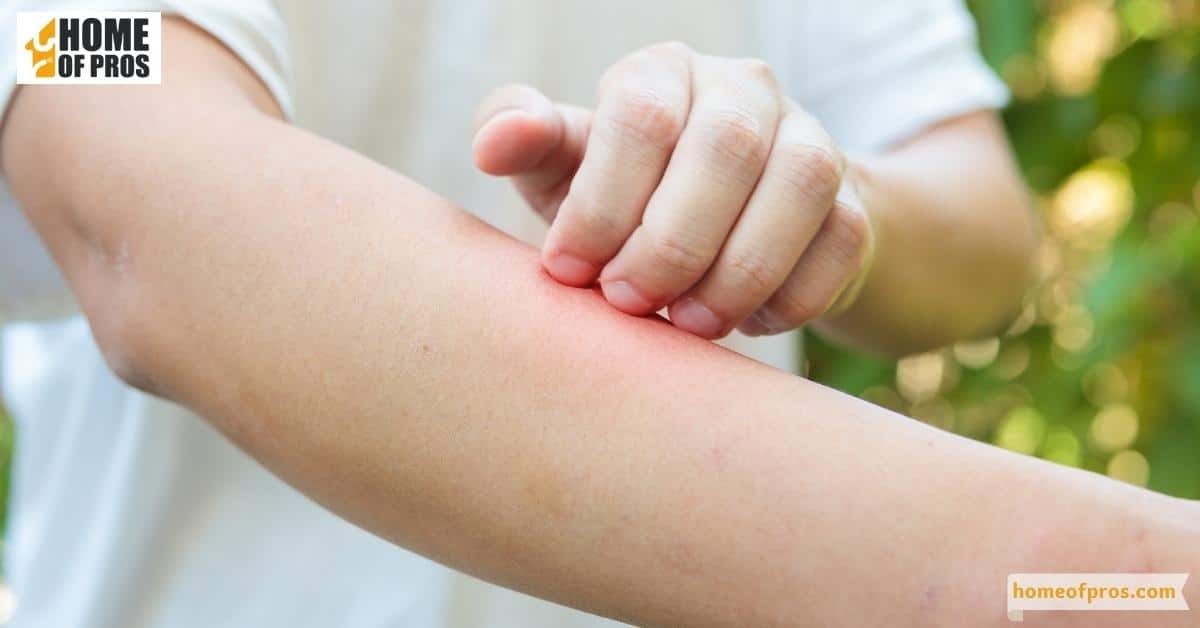
Possible Allergic Reactions
In rare cases, people may have an allergic reaction to horse fly bites. Symptoms can include hives, difficulty breathing, dizziness, and swelling of the face or mouth. If you experience any of these symptoms after a horse fly bite, seek medical attention immediately.
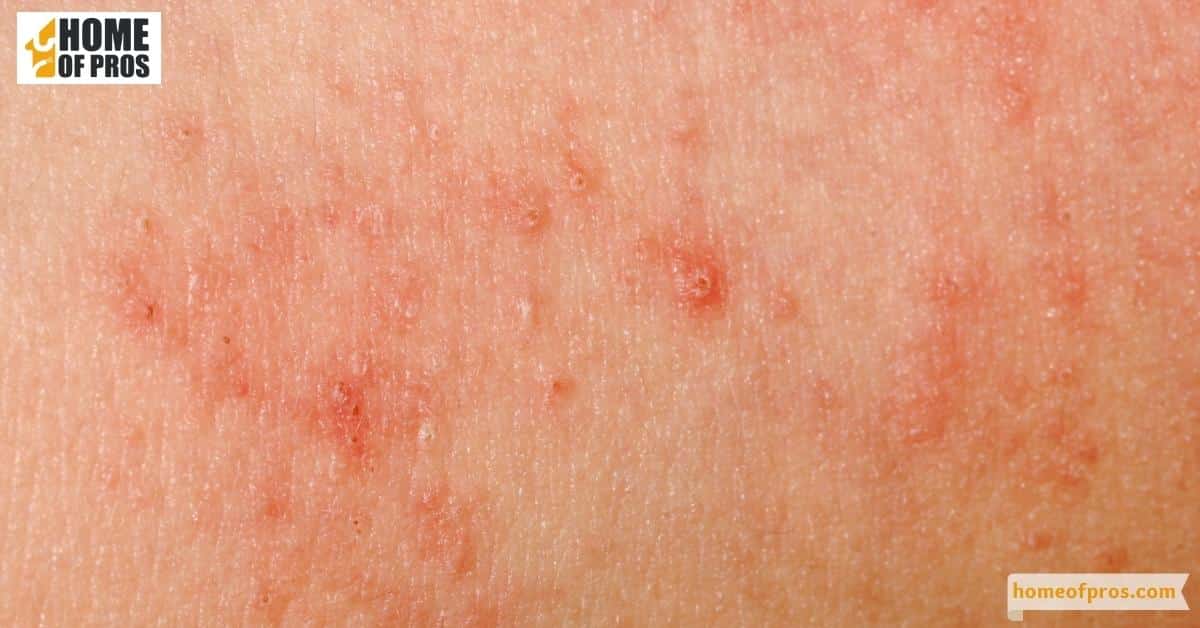
How To Avoid Getting Bitten By A Horse Fly
Horse flies are notorious for their painful bites, especially during the warm summer months. The good news is, there are several strategies you can employ to avoid getting bitten by these pesky insects. Here are some practical tips to help you dodge horse fly bites:
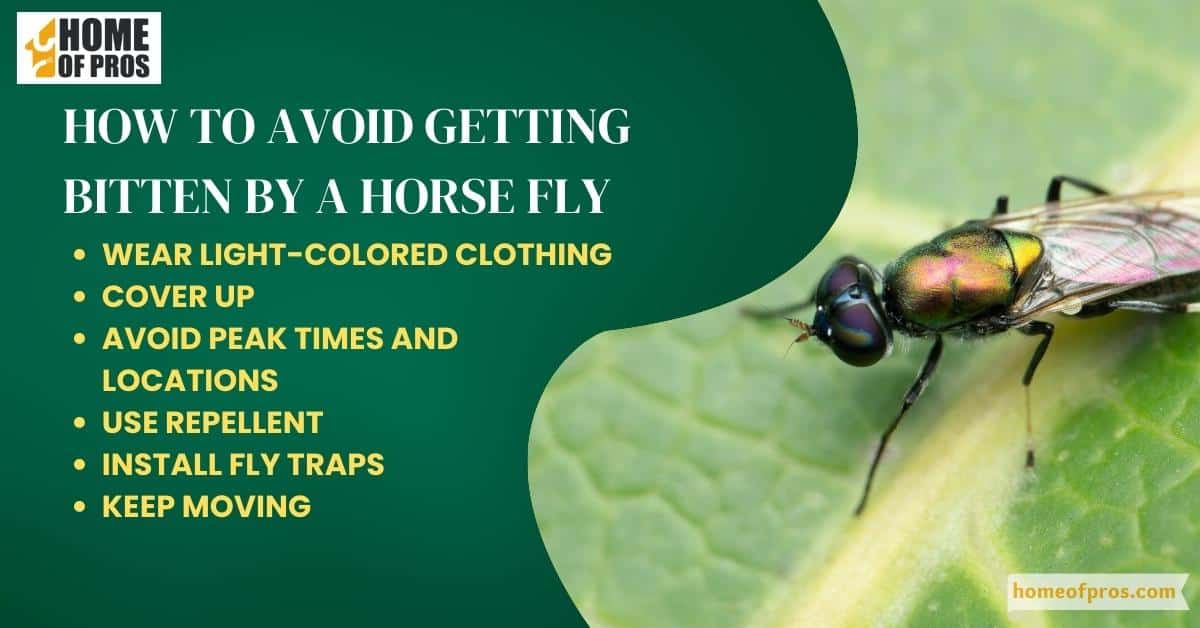
- Wear Light-Colored Clothing: Horse flies are attracted to dark and shiny surfaces. By wearing light-colored clothing, you can make yourself less appealing to these insects.
- Cover Up: The more skin you have exposed, the more attractive you are to horse flies. Wear long sleeves, pants, and hats to protect your skin.
- Avoid Peak Times and Locations: Horse flies are most active during the warmest parts of the day and are often found near bodies of water. Avoid outdoor activities during peak horse fly activity times and stay away from their common habitats.
- Use Repellents: Apply insect repellents that contain DEET or Picaridin to your skin and clothing. These substances can help deter horse flies from biting.
- Install Fly Traps: Consider setting up fly traps around your property to catch horse flies. These traps can significantly reduce the local horsefly population.
- Keep Moving: Horse flies are attracted to movement. If you keep moving, they’re less likely to land on you and bite.
Treatment For Horse Fly Bites
Horse fly bites can be quite painful due to the insect’s unique method of feeding which involves cutting into the skin. It’s important to treat these bites promptly to prevent infection and alleviate discomfort. Here’s a guide on how to effectively treat horse fly bites.
Immediate After-Bite Care
Immediately after being bitten, clean the wound thoroughly with soap and water. This first step is crucial in preventing an infection from developing.
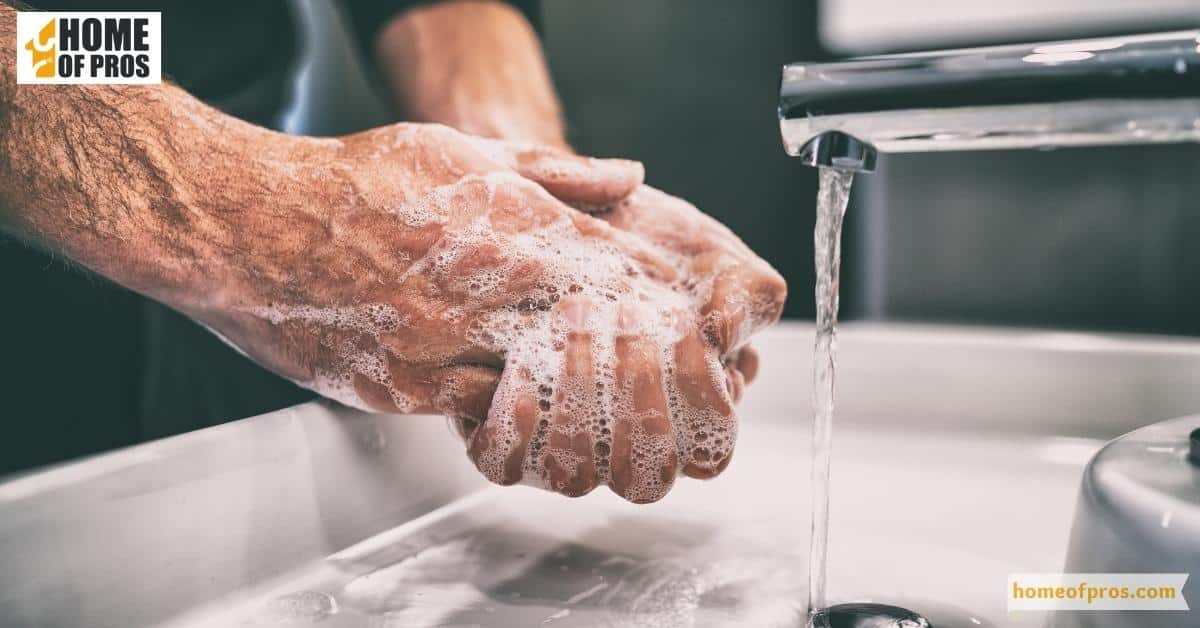
Reducing Pain and Swelling
To ease any pain and reduce swelling, apply a cold pack wrapped in a cloth to the affected area. Over-the-counter pain relievers can also be helpful in managing the discomfort associated with horse fly bites.
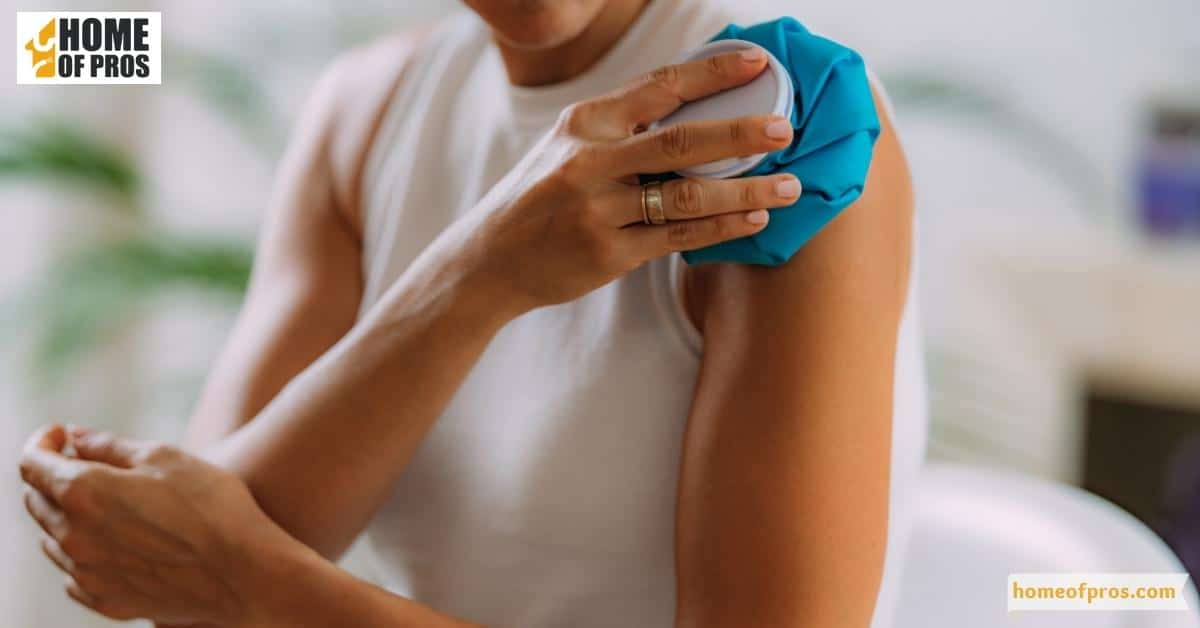
Preventing Itching
The itching from a horse fly bite can be intense, but scratching can exacerbate the swelling and potentially lead to infection. Applying an oral antihistamine or a topical cream such as hydrocortisone can help to minimize the itchiness.
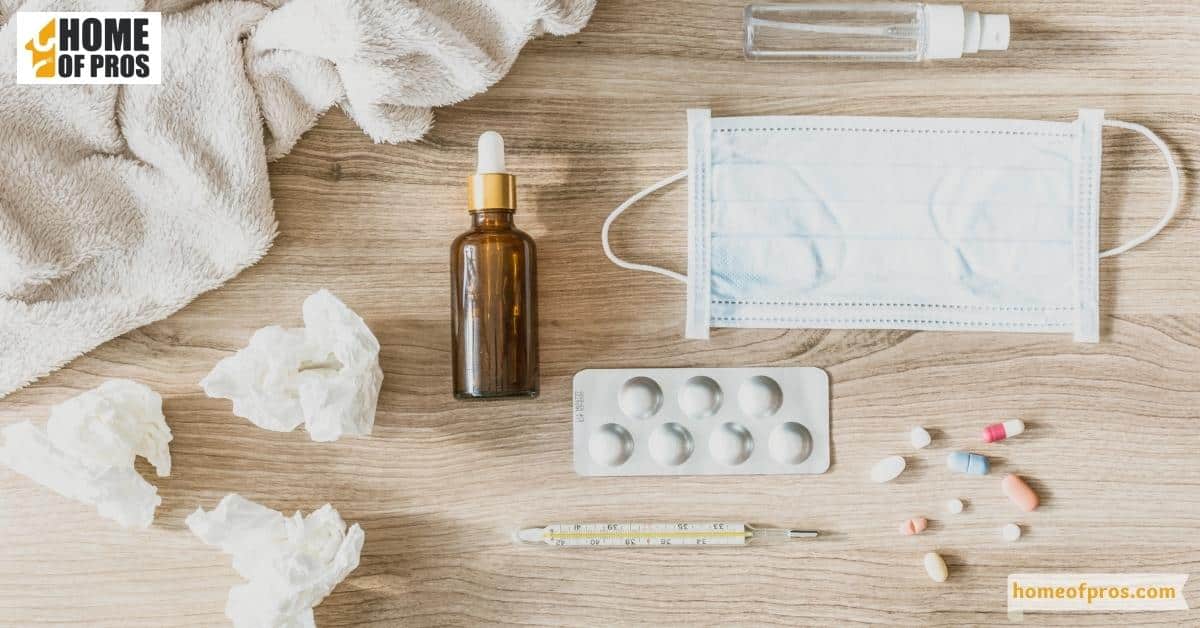
When To Seek Medical Attention
While most horse fly bites heal on their own, you should seek medical attention if you experience symptoms like light-headedness or dizziness. Furthermore, if signs of an infection such as pus or a foul smell develop, consult a healthcare professional immediately.

In conclusion
Horse flies are bothersome pests that can cause painful bites. However, with the proper precautions and treatments, you can minimize the discomfort associated with horse fly bites and protect yourself from any potential health risks.
By understanding how to identify a horse fly bite and taking preventative measures, you can enjoy outdoor activities without worrying about being attacked by these pesky creatures.




